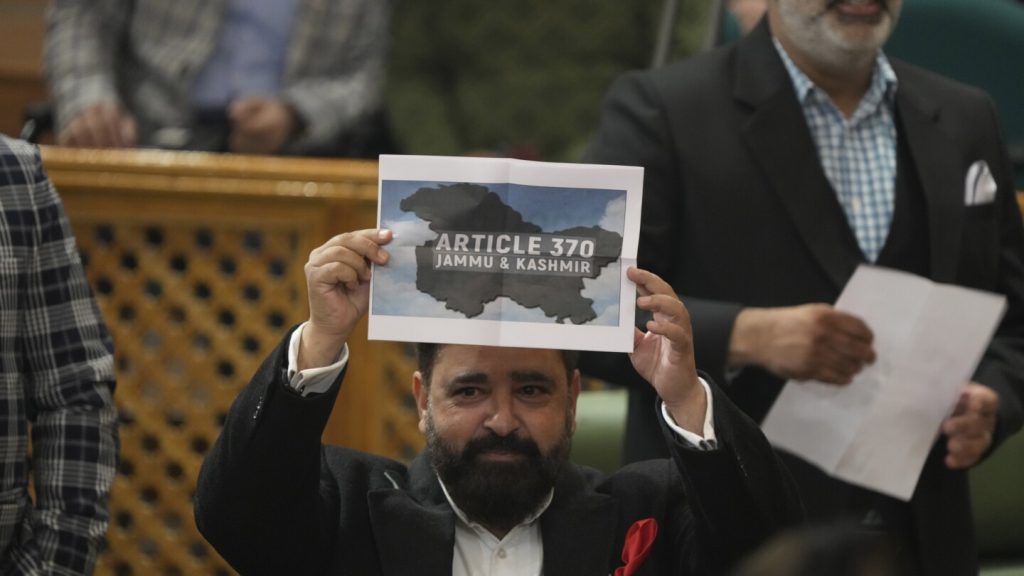The regional legislature in Indian-controlled Kashmir passed a resolution demanding the restoration of the disputed region’s semi-autonomy that was revoked by Prime Minister Narendra Modi’s administration in 2019. The resolution, passed with a majority vote, called for dialogue with the elected representatives of Jammu and Kashmir for the restoration of special status. However, Modi’s Bharatiya Janata Party rejected the resolution, which requires approval from the appointed top administrator in Kashmir. The move to scrap the region’s autonomy and divide it into two centrally governed union territories was met with opposition in Kashmir, seen as an assault on its identity and autonomy.
India and Pakistan each administer a part of Kashmir, but both claim the territory in its entirety. The nuclear-armed rivals have a history of conflict over the region, with militants in the Indian-controlled portion fighting against New Delhi’s rule since 1989. While India labels the Kashmir militancy as Pakistan-sponsored terrorism, many Kashmiris view it as a legitimate freedom struggle. The region remains a “union territory” under direct federal government control, with ongoing tensions and restrictions on civil liberties and media freedoms. Tens of thousands have been killed in the conflict between rebels, civilians, and government forces.
The resolution passed by the regional legislature reflects the ongoing struggle for autonomy and identity in Kashmir, with the National Conference party leading the call for dialogue and restoration of special status. Despite promises from Modi and his home minister to restore statehood after the election, no specific timeline has been provided. The decision to scrap Kashmir’s autonomy in 2019 was met with mixed reactions, with concerns about potential demographic changes and the impact on the region’s unique identity. The resolution underscores the deep-rooted complexities and divisions within Kashmir, with differing perspectives on the conflict and the path towards a resolution.
The Kashmir conflict has been a longstanding issue between India and Pakistan, with both countries claiming the territory and engaging in armed conflict over the region. The resolution passed in Indian-controlled Kashmir highlights the ongoing struggle for self-determination and autonomy, with concerns about the impact of central government decisions on the region. The demand for dialogue and restoration of special status reflects the desire of many in Kashmir to assert their unique identity and rights in the face of political changes imposed from outside. The road to resolution in Kashmir remains complex, with competing narratives and interests at play, creating challenges for a lasting and peaceful solution in the region.















